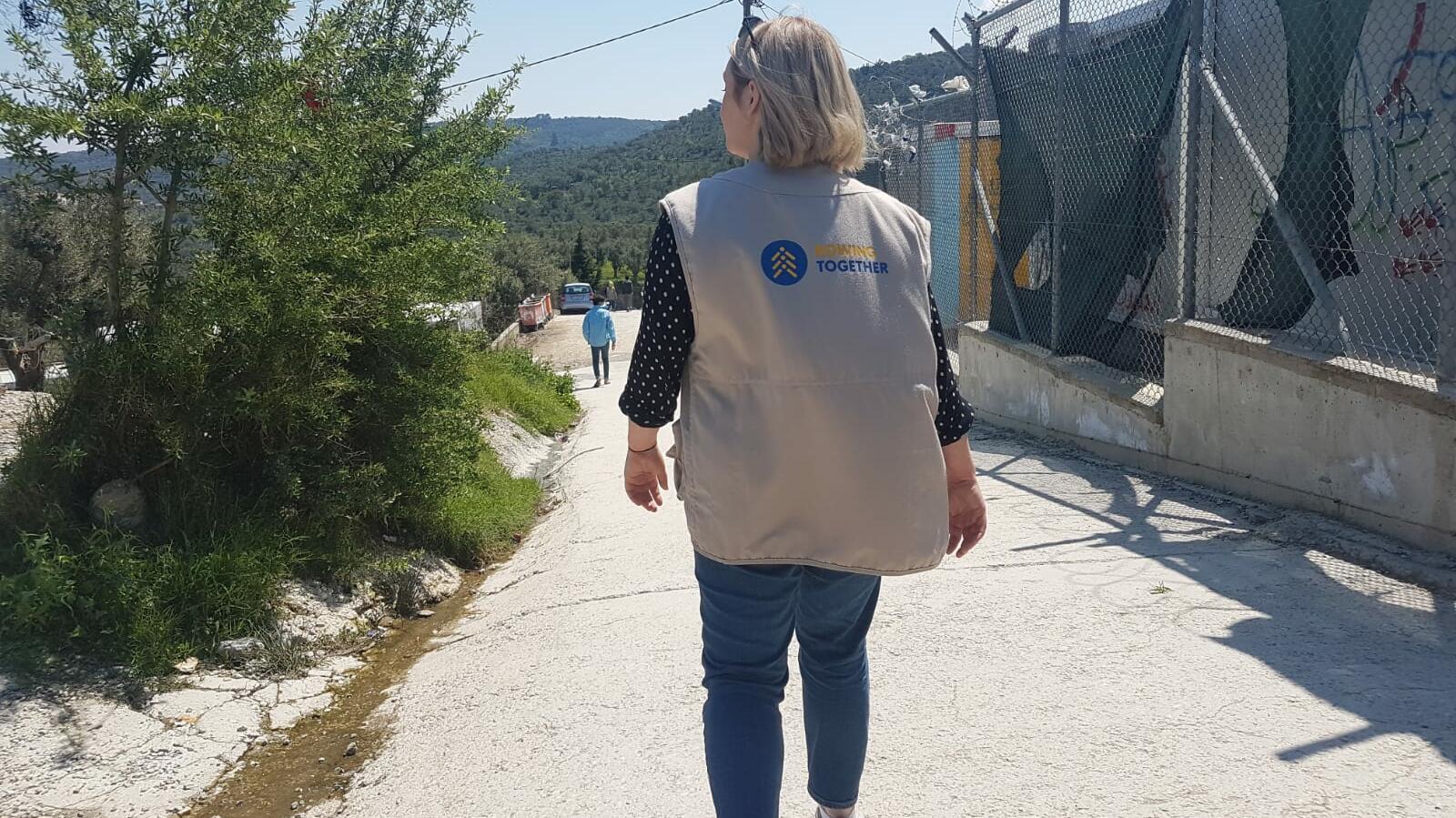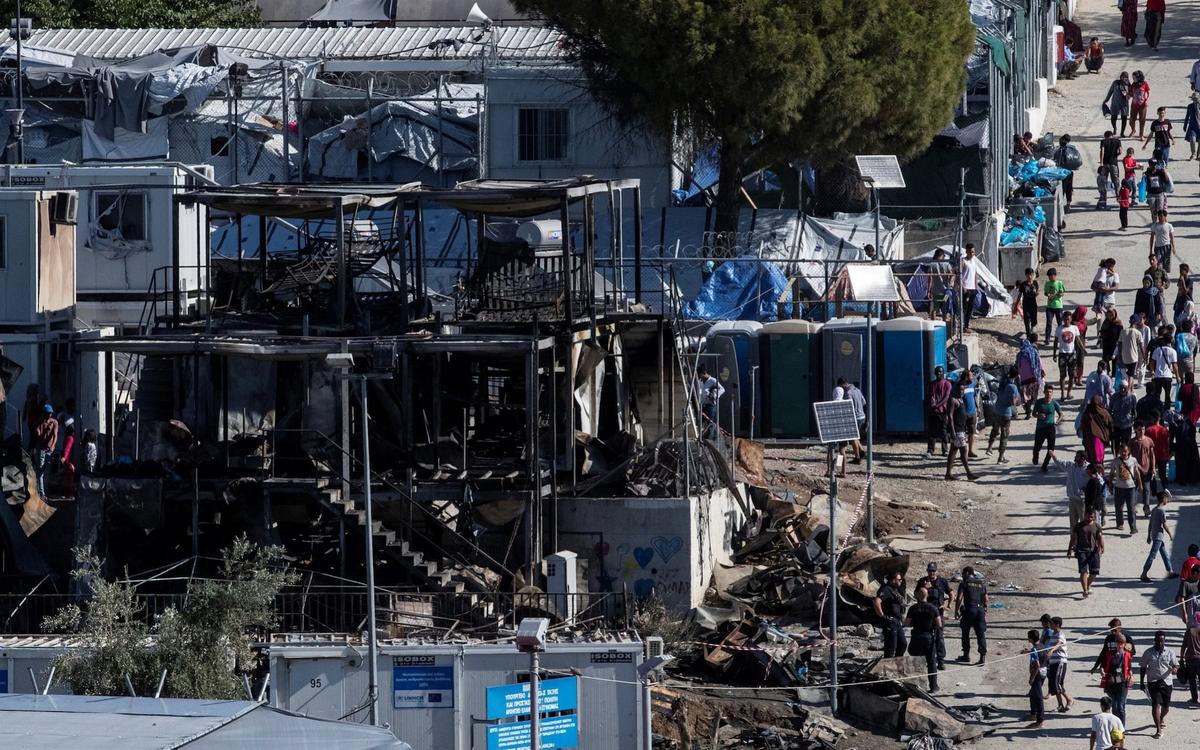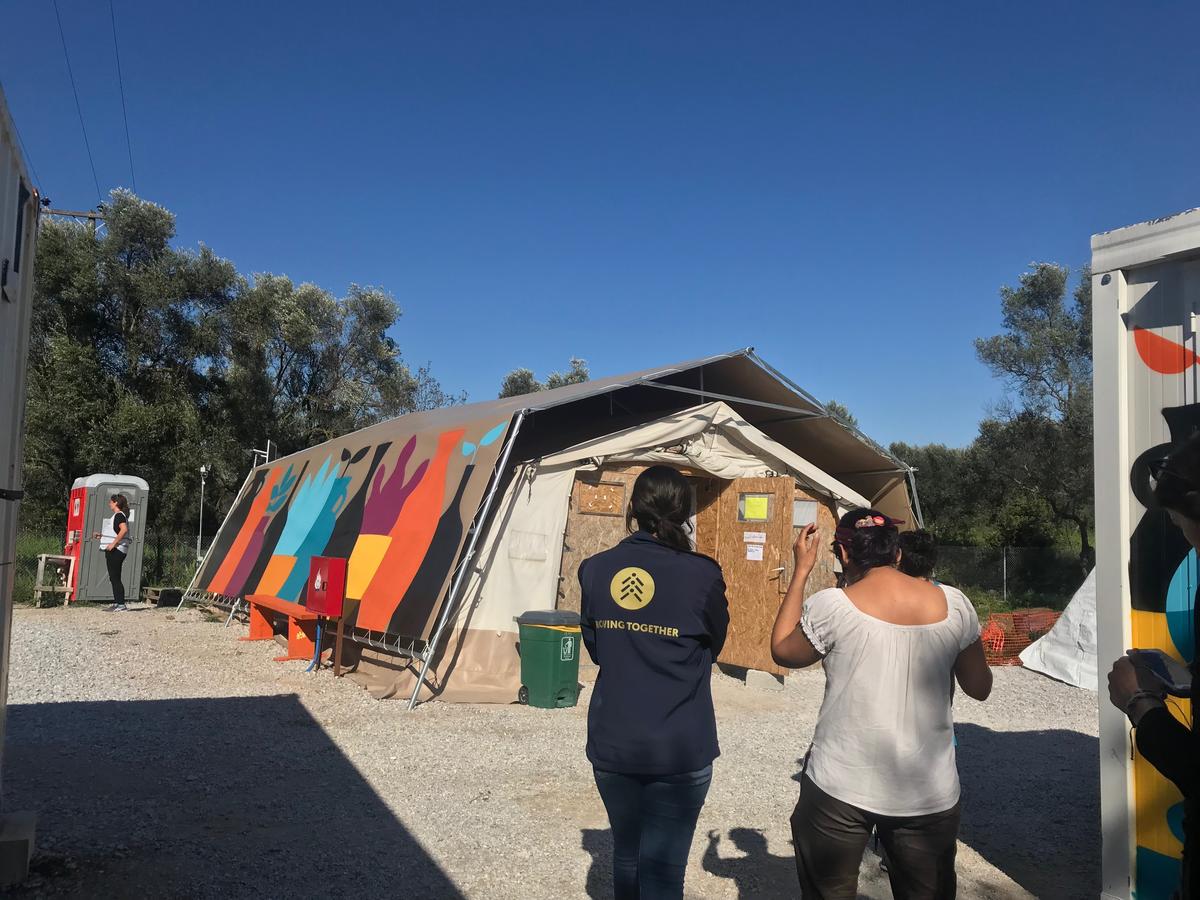
A group WhatsApp can serve many purposes, from social interactions to liaising with coworkers, from sharing family photos to cat memes. I am part of a WhatsApp group which serves a very different purpose; one in which a group of current and former volunteers share updates and news on a world seldom covered by the Western media.

On Sunday night I was devastated to hear news of a fire. A fire within Europe, and one that has featured little in our media. A fire from which the victims' cries were not heard. A fire that killed a mother and child.
Moria is a name known to very few - the largest refugee camp in Europe accommodating over 12, 000 people. Many will remember the ‘refugee crisis’ of 2014, unaware that this same crisis continues within Europe, its victims increasing day by day. These people have fled their lives in Afghanistan, Iran, the Democratic Republic of Congo and Syria, to name a few, fleeing oppression and conflict in the hope of finding a new home. Many did not expect a ‘home’ such as this one. In Moria, people live in crowded tents and isoboxes, poorly weatherproof and cramped with as many as 100 people to a ‘home’, as many share one toilet and a cold shower. Life in Moria, as described previously on this blog by my colleague and friend, Hamish, is ‘unfit for humanity’.
Earlier this year I worked at Moria camp with Rowing Together, a Spanish NGO, providing routine and emergency maternal and gynaecology care to refugee women. These women often presented with advanced and neglected gynaecological issues having had little to no healthcare access during months of migration, or, for many women fleeing persecution, most of their lives. Others attended to report sexual assault, often at the hands of their smugglers. I also had, however, the privilege of sharing with these women some of their most joyous moments in a life of much hardship; a tender smile and a glimmer of hope in her eyes as she watched a white blob dancing, kicking on a small fuzzy screen.
The pregnancy rate among the women of Moria is high, and our women often waited hours on end for a glimpse of their little one on our 1980s ultrasound scanner, or for the hopeful news that an early pregnancy continues. On hearing of the fatal fire, I immediately thought to my patients, agonising over the victim and her cherished baby. Had she been ‘one of ours’? Had she, too, spent many an afternoon queuing for our stretched clinic, bustling with children, ‘aunties’, relatives and, often, frazzled volunteers. Had she felt seen and were her worries eased? Antenatal anxiety is ubiquitous and these women have more reason than most to fear the worst, with poor sanitation, overcrowding, and long food lines just some of the obstacles faced by Moria mothers, from which we could give no solace in our small clinic.
The fire at Moria is reported to have started in the olive grove adjacent to the camp, which for several years has acted as an ‘overflow’ area. People sleep in tents and makeshift shelters, giving poor protection from the extreme weather conditions; an Afghan man sadly died overnight here in 2018 from hypothermia. A second fire occurred soon after the first, this time in a two-story isobox inside the camp, occupied by several families, with a reported struggle to escape the dwelling. This is where a mother and her baby lost their lives. Images online show a dark, thick smoke pervading throughout the camp with residents struggling to breathe. Photos of the aftermath reveal a charred skeleton of the former ‘home’.
This is not the first fire that has occurred in Moria. There have also been numerous fatalities since the camp’s conception in 2014, from accidents, assaults to more cases of hypothermia. The inhabitants of Moria play a game of waiting and tolerance; waiting for a bed; waiting for food; waiting for paperwork; waiting for asylum - with some waiting several years for their case to even be heard- all the while tolerating injustice in every form.
The fire on Sunday sparked a long building rage in the inhabitants of Moria with riots breaking out later that night - met by police with tear gas.
‘Moria is hell’ a placard reads, another ‘free us from this prison’ as a march against Moria’s inhumane conditions left the gates of the camp on Tuesday morning. They are stopped a few hundred metres into their march by riot police, bearing batons. Again, the inhabitants of Moria are denied their human rights: the right to protest, the right to shelter, the right to safety.
A gross violation of human rights happens every day off the coast of Greece. This has not happened by mere accident. This preventable fire is but one grisly manifestation of a much bigger problem. In 2016, the EU and Turkey struck a deal, in which Turkey agreed to take all irregular migrants arriving in the EU; this meant that those unsuccessful in their asylum process in Greece should be immediately deported to Turkey. Ostensibly this has not been a swift nor streamlined process, and the limited capacity of the Aegean Island’s justice system is just one aspect of a multifaceted systems failure that has led to gross neglect of the hundreds of thousands of refugees who have passed through Greece since 2014.
Amnesty International this week has called on the EU and other EU member states to arrange urgent relocation schemes for the people of Moria. Deportation is not a solution. Human response is needed to improve this deplorable situation; this is one that requires international cooperation and recognition of migration as a global issue – one that we are sure to see growth in the coming years as the population of climate refugees increases.
Hearing of this news via WhatsApp made me feel, not only sad but uncomfortable. Uncomfortable in my comfortable, warm and kind Liverpool life.

During my time working with Moria mothers in the face of abject cruelty, I focused on what I could do for them to make things less awful, more tolerable. In our crowded, overwhelmed, understaffed and often overheated clinic, we tried our best to look after not only reproductive health but mental health too. A listening ear, a warm embrace or a helping hand with a crying child. The stories heard in that clinic were both heartbreaking and extraordinary. Families who had fled persecution, migrating across the land for months; mothers who left abusive relationships taking her children with her. I listened wide-eyed to these tales of woe, hoping that I could, would be of some use to these women, most of whom had a world of experience above me.
The first time I cried was on my flight leaving the island. Suddenly struck by a feeling of inertia, the reality of my own helplessness; acutely aware that as one individual I cannot solve this problem.
In the past few days, there has been increasing coverage of this fire within the media. With talk of this fire, there have pleas to find a solution for the people of Moria. A reader may want to help but not know how to do so in a situation so complex. As individuals, there is always the opportunity to volunteer with an NGO on the ground (something that I would wholeheartedly encourage!). In a greater context, however, it is important to take notice and advocate for change within Europe.
Let this fatality be the smoke of the often hidden fire that is the global refugee crisis. As the people of Moria shout in their streets, we too, must stand up and shout against this injustice happening on Europe’s doorstep.
Ciara Kiely